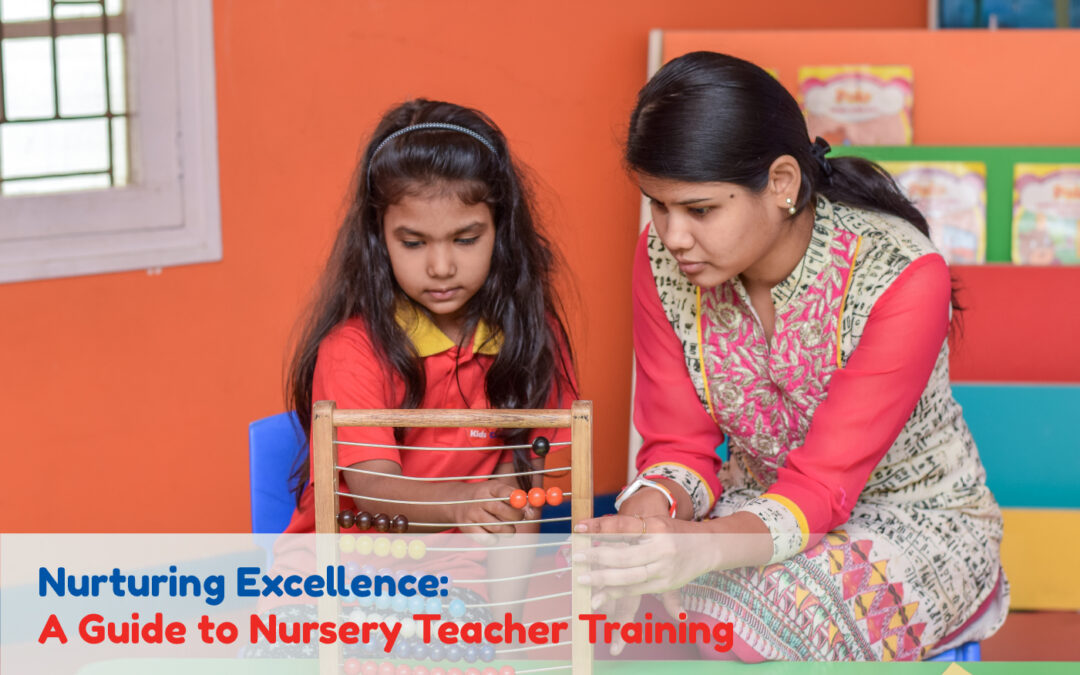Introduction:
Nursery teachers are crucial to a child’s lifelong learning. They must delicately foster holistic development in young minds beyond traditional teaching methods. This blog post will discuss nursery teacher training, its components, and how it can affect both teachers and their students’ education.
The Importance of Nursery Education:
This crucial stage helps children develop cognitive, social, and emotional skills. Effective nursery teachers create a positive and stimulating learning environment that prepares children for academic success.
Nursery Teachers Role:
Besides teaching, nursery teachers mentor, care for, and help children adjust to structured learning. Training programs teach teachers how to manage classrooms, accommodate diverse learning styles, and foster a nurturing environment.
Key Nursery Teacher Training Elements:
ECD: Early Childhood Development:
Early childhood development is thoroughly covered in training. Teachers study cognitive, social, emotional, and physical milestones to tailor their lessons to each child.
Training for nursery teachers emphasizes adopting child-centered teaching methods. This requires hands-on, interactive lessons that foster creativity, critical thinking, and exploration.
Effective classroom management in a nursery requires specialized skills. Training programs address ways to improve learning environments, handle behavioural issues, and build community among young learners.
Communication and Collaboration:
Teachers receive training to effectively communicate with students and parents. Training programs often include communication modules to help children develop strong parent-child relationships.
As technology becomes more important in education, nursery teacher training includes guidance on integrating age-appropriate technology into the curriculum. This equips teachers to use educational tools to improve learning.
Practical Application and Classroom Experience:
Nursery teacher training goes beyond theory to include practical application. Aspiring teachers can practise in real classrooms in programmes with supervised teaching. Teachers need this hands-on experience to prepare for nursery classrooms’ unpredictability.
Continuous Professional Development:
Nursery teacher training programs acknowledge the need for ongoing professional development in the ever-changing education field. Teachers are encouraged to attend workshops, learn new research, and follow educational trends.
The Nursery Teachers Training
NTT course by Kids Castle Preschool offers a platform for aspiring and professional nursery teachers. The training aids in the process of child centric learning helps understand the latest approaches and methods of planned teaching through fun ways.
The Diploma is perfectly designed to instil systematic teaching practices, creative techniques and captivating classroom activities and enables teachers with required skills.
The course includes both theoretical and practical aspects of preschool education, which is essential for every teacher.
Conclusion:
Nursery teacher training is an investment in the future of education and of the nation. Well-trained nursery teachers shape young learners’ academic foundation and overall development. Comprehensive training helps aspiring nursery teachers create nurturing and stimulating environments that foster lifelong learning. Quality nursery education and skilled nursery teachers shape the futures of the children they guide.
It is also a helpful to the teachers. Successful completion of this Diploma course provides ample job prospects and prepares the teacher for classroom challenges.
Kids Castle Preschool Nursery Teacher Training Institute is affiliated to All India Early Childhood Care and Education, New Delhi. A.I.E.C.C.E.
Please subscribe to our YouTube channel.

